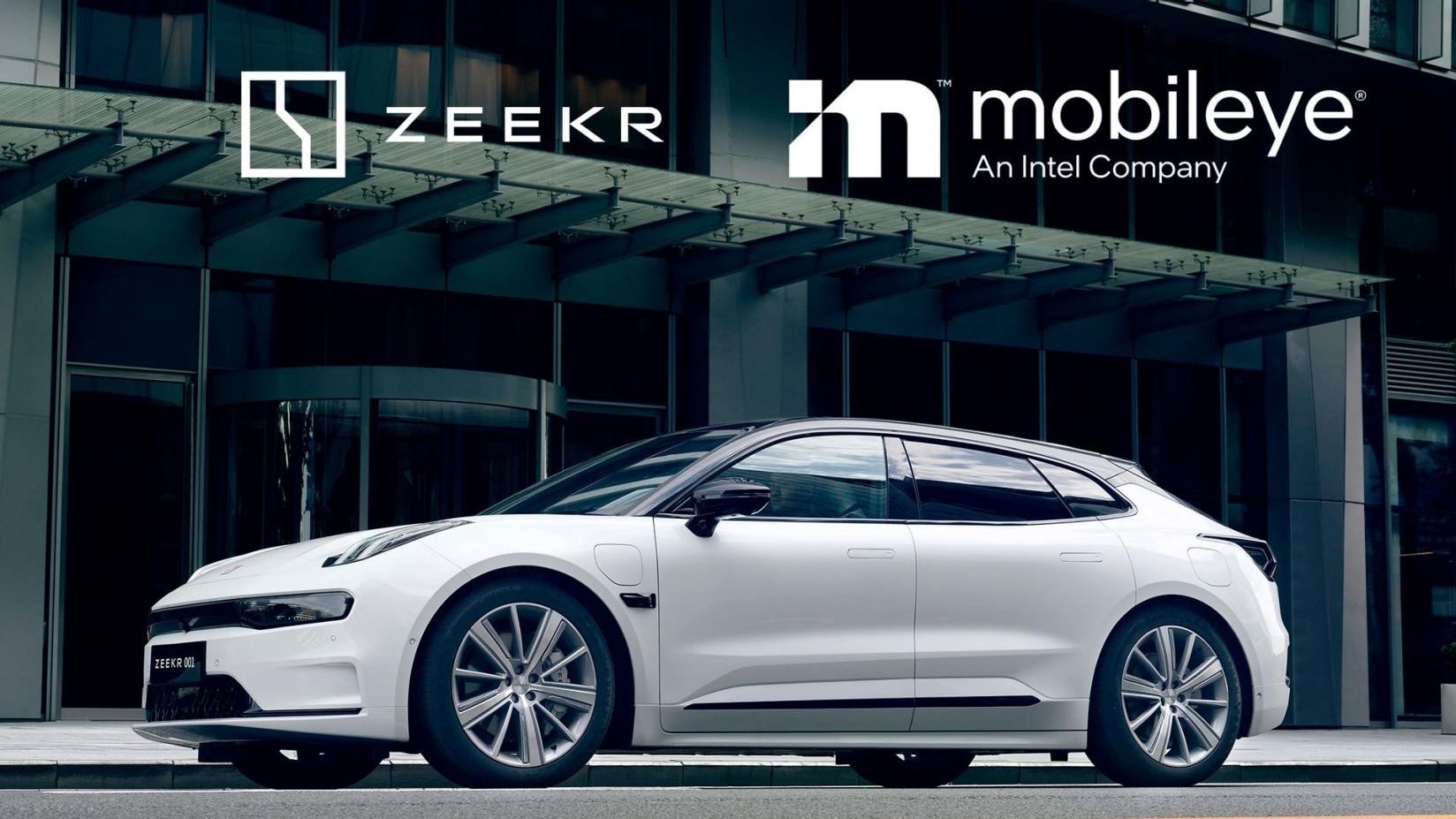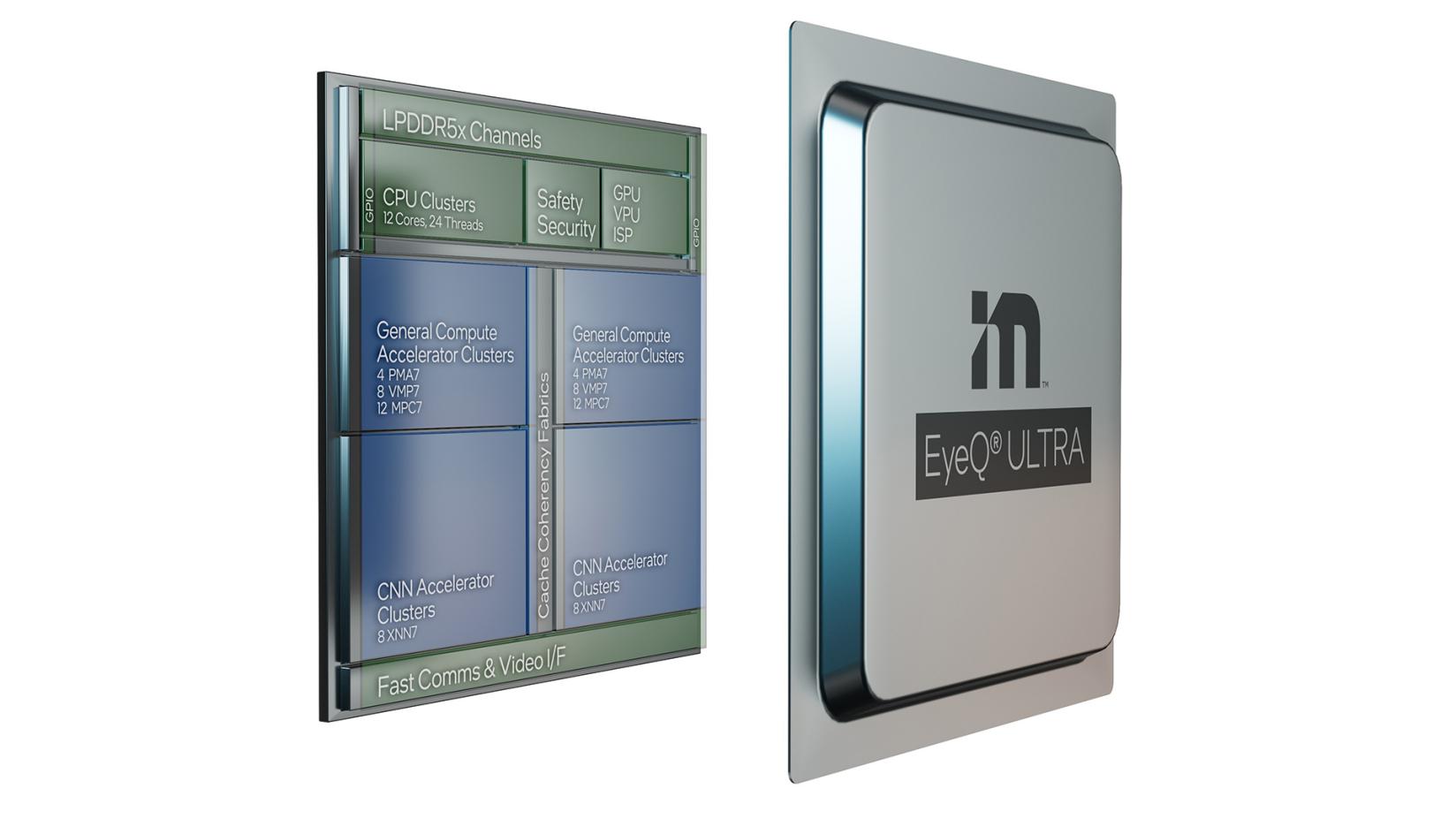Intel too joins the automotive race - Its Mobileye signs new deals
With Volkswagen, Ford, Zeekr

If chip-maker Qualcomm is pressing ahead with its thrust in the automotive sector, its rival Intel seems no less intent with its own push. Intel's autonomous driving unit, Mobileye, has announced the launch of Eye Q Ultra, a chip aimed to allow for end-to-end autonomous driving.
Just as Qualcomm, the Intel arm inked a series of strategic deals with automakers Ford, Volkswagen, and Zeekr at the ongoing CES 2022.
Eye Q is a system-on-chip “purpose built for autonomous driving” and utilizes four accelerators, paired with ISPs, GPUs, and CPU cores, in order to effectively process inputs from the vehicle’s central computing system, as well as camera-only subsystems and combined radar and Lidar subsystems.
- LG's in-vehicle infotainment system to debut in Renault EV
- Qualcomm & Google join hands for Renault's new electric vehicle
EyeQ Ultra delivers the power for AVs

Mobileye has designed the EyeQ Ultra after having first built an AV (Autonomous Vehicle) to understand exactly what a self-driving vehicle needs to operate at a very high meantime between failures.
EyeQ Ultra builds on seven generations of existing EyeQ architecture to deliver the power and performance needed for AVs, which are all but certain to be all-electric vehicles.
“Consumer AV is the end game for the industry,” Amnon Shashua, Mobileye president and chief executive officer was quoted as saying. “By developing the entire self-driving solution – from hardware and software to mapping and service models – Mobileye has a unique perspective into the exact requirements for the self-driving system that enables us to reach the performance-and-cost optimization that will make consumer AVs a reality.”
First silicon for the EyeQ Ultra is expected at the end of 2023, with full automotive-grade production in 2025.
Get daily insight, inspiration and deals in your inbox
Sign up for breaking news, reviews, opinion, top tech deals, and more.
How Volkswagen & Ford will use Mobileye tech
Mobileye also announced collaborations with several auto manufacturers: VW, Ford, and Zeekr based on its mapping, advanced driver-assistance systems (ADAS) and autonomous vehicle (AV) tech.
The Volkswagen Group will use Mobileye’s crowd-sourced mapping technology ("swarm data") to enhance ADAS comfort features like lane-keeping/centering in VW, Škoda and Seat brand vehicles.
Swarm data is collected via Mobileye-equipped vehicles globally, and Volkswagen is now using that data to enhance the driver experience. For example, where available, lane-keeping assistance will be provided in many areas even without visible lane markings.
Ford will use Mobileye’s Road Experience Management (REM) technology, which will allow for drivers’ hands-free operation of their vehicles.
Ford will begin using Mobileye’s REM in future versions of the Ford BlueCruise system, which allows customers to operate their vehicles hands-free while monitored by a driver-facing camera that makes sure customers are keeping their eyes on the road.
One of the features of REM is that Mobileye captures data about where drivers actually position themselves on the road, what trajectory they take when making turns and where they actually stop at intersections. This will be used to train automated driving systems.
Zeekr new electric car by 2024
Meanwhile, Zeekr, the global electric mobility technology brand from Geely Holding Group, along with Mobileye will come out with an electric self-driving vehicle in two years.
Zeekr’s all-electric vehicle will be enhanced by Mobileye’s True Redundancy system, REM, and Responsibility-Sensing Safety-based driving policy. It will be the first consumer vehicle with L4 automated driving capability. (L4 cars do not require human interaction in most circumstances. However, a human still has the option to manually override.)
Mobileye Drive platform will use the camera data on its own perception algorithm to create a model of the environment and then into the path planning system that actually guides the vehicle through that environment. The car will debut in 2024 in China.
For the record, Intel is scheduled to come out with initial public offering (IPO) for Mobileye in the US later this year. Intel, which currently owns 100% of Mobileye, will remain the majority shareholder in the company following its IPO.
Want to know about the latest happenings in tech? Follow TechRadar India on Twitter, Facebook and Instagram!

Over three decades as a journalist covering current affairs, politics, sports and now technology. Former Editor of News Today, writer of humour columns across publications and a hardcore cricket and cinema enthusiast. He writes about technology trends and suggest movies and shows to watch on OTT platforms.